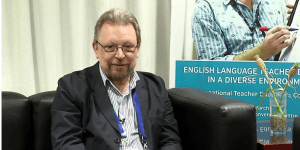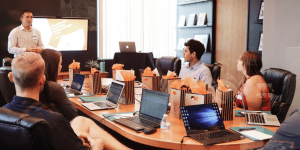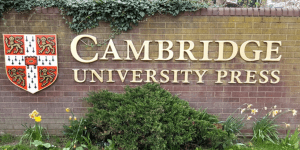KoreaTESOL (KOTESOL) International Conference
Another conference is done and as the post-conference cocktail of exhaustion and euphoria fades, I would like share with you who we are, what it is all about, why it is the highlight of KOTESOL’s year and how it represents the best that KOTESOL has to offer ELT professionals.
The WHO
KOTESOL was created in October, 1992 by a dedicated group of Korean and non-Korean educators from two other organisations (AETK and KATE) to represent their professional interests more fully than the other teachers organisations that existed at that time. Conferences like the International Conference started almost immediately. While the stated purposes of KOTESOL are to inform, foster a deeper cultural understanding, and promote scholarship amongst ELT professionals and the broader community, our organisation and conference are so much more than that for those of us who have gotten more closely involved with it.
As a lifetime member, past-President of Seoul chapter and KOTESOL and minor conference committee member for a number of years now, I know the conference as both an insider and an outsider. Many of the key people on the committee are already national or chapter officers, but there are also those who work exclusively with the international conference committee and prefer it that way. Three Past Presidents were on this year’s committee, and the most recent was a conference committee member before being elected. Our newest President has also been active on the conference committee over the past few years as well. These are the people who work behind the scenes and who embody the camaraderie, professionalism and dedication that KOTESOL strives for at every level and in every facet of the organisation.
The WHAT
Twenty-three conferences have come and gone. Over that span of time, much has changed in the educational environment of Korea. From the heyday of the Foreign Language High Schools in the 1980’s and 1990’s to the many revisions of the much feared high school entrance exam, KOTESOL has offered teachers a snapshot of the latest and most effective methods for teaching our students to make English come alive rather than being just another subject to be learned and tested.
Themes like “Pushing our Paradigms: Connecting with Culture”(2011), “Perfect Score: Methodologies, Technologies, & Communities of Practice (2012) and this year’s ‘Transitions in Education, Transitions in ELT: Learning through Inquiry” demonstrate the breadth and scope of our conference in a nutshell.
Further, a glance through past speakers shows that we attract some of the biggest names in ELT. Stephen Krashen, Paul Nation, David Nunan, Rodd Ellis, Michael Long and Jeremy Harmer are just a few of the well known names that have graced past conferences as plenary or invited speakers. Supplemented by hundreds of carefully vetted presentations from both Korea based researchers and educators and international speakers grouped into categories like 101 presentations (new teacher focused), YL (Young Learners), T (Teens), U (University), and A (Adults) there is something for everyone during the two days of the conference.
The WHY
While the number of teachers in Korea has dropped over the years, conference attendance has always been equal to or greater than the number of KOTESOL members. Think about that for a moment. This means even people who do not join KOTESOL know the value of the conference as a one-stop place to hear about what is going on in the wider ELT field but the presenters and themes are not the only reasons to come.
Traditionally, the biggest publishers offer commercial presentations by authors of both new and updated textbooks like Jack Richard’s “New Interchange”, Michael McCarthy’s “Touchstone”, Raymond Murphy’s “Grammar in Use” and Curtis Kelly’s “Write from Within” for example. Each of these author’s has also been a speaker at one or more past KOTESOL conferences.
The HOW
KOTESOL’s membership has historically been about 70% non Korean and 30% Korean. With 700 or so members in 10 chapters from Seoul to Jeju and most major cities in between it is relatively easy to access KOTESOL activities near you. While the international conference is probably our biggest and most widely recognised activity, there are monthly chapter meetings or other activities throughout the year. These include a spring national conference that rotates around the chapters on a regular basis, chapter level conferences and symposium, regular events like the National Drama Festival hosted by Jeonju-North Jeolla in November, the Daejeon chapter’s annual Thanksgiving Symposium, and social meetings like picnics or barbecues are also hosted by various chapters.
Along with chapters, there are a number of Special Interest Groups (SIGS) that are available for KOTESOL members. For example, the Christian Teacher’s SIG manned a table at the most recent conference and hosted their own conference in September. At the chapter level, the Reflective Practice SIG hosts regular meetings in Busan, Kwangju and Seoul among other cities. The types and numbers of SIGS are regularly changing so check the KoreaTESOL website for details.
As a member, most of the events mentioned above are offered at a discount or even for free. But that is not all KOTESOL has to offer. KOTESOL offers research grants, a regular magazine (The English Connection), the KOTESOL Journal, Conference Proceedings, certification to verify your professional development at the conference, and a classroom observation program for interested teachers.
Also, the year-old Job center managed and ran the Employment center at the most recent international conference. After a 5 year hiatus, this free consulting and employment service attracted a steady stream of interested KOTESOL members during the two day conference.
All of these events and services require dedicated volunteers. If you want to get involved and learn some new skills, KOTESOL has a job for you. While chapter and national officers are elected annually, most committees like the conference committee are made up of KOTESOL officers, members and even university students who keep the conference running as smoothly as possible. They need people to fill positions both big and small, so if you are interested in seeing how a conference is done join the team and meet some great people.
In the end, the conference is just the tip of the iceberg where KOTESOL is concerned. While attending a conference or two will give you some insight into who KOTESOL is and what we do, the only way to really get to know us is to attend a few of our other events, read our publications and talk to or join our team of volunteers.




